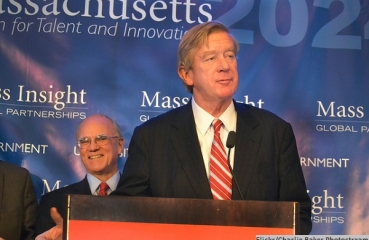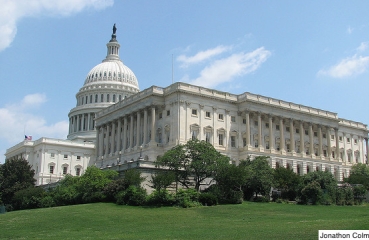Life lessons from a grandfather's wisdom
During my first year at the University of South Carolina, I often purchased a morning cup of coffee in the university’s student union. Early one morning, I spotted a young man dressed in a business suit and bow tie carrying on an animated conversation with a group of undergraduates.
Four approaches to ESSA accountability
Michael J. Petrilli, Brandon L. WrightBy Michael J. Petrilli and Brandon L. Wright
How will ESSA change Ohio’s school report cards?
Jessica PoinerESSA implementation means changes to Ohio's school report cards
What "Hamilton" and its 11 Tonys say about grit and privilege
The ten-dollar founding father without a father,Got a lot farther by working a lot harder,
Open educational resources are just building blocks—an education requires an architect
If there were just one thing I could say to fans of open educational resources (OER) and personalized learning, it would be this: “Atomized units of knowledge don’t build anything.” That quote comes from an education reformer who used to teach in a high-powered classical school.
The Ali edition
On this week’s podcast, Mike Petrilli and Checker Finn discuss the growing left-right schism in education reform, whether we need more than just "no-excuses" charter schools for poor kids, and a Maryland county’s attempt to diversify its gifted programs. During the Research Minute, Amber Northern examines the effectiveness of SEED DC, the nation’s first public, urban, college-preparatory boarding school.
Charter school restarts get a set of online resources
Kathryn MullenBy Kathryn Mullen Upton
Charter Icahnoclast
Kevin MahnkenWe here at Fordham are really jazzed about the potential of high-quality career and technical education (CTE).
Taking reform straight to parents and teachers
Michael J. PetrilliBy Michael J. Petrilli
Market malfunctions in the charter sector
Chester E. Finn, Jr., Brandon L. WrightBy Chester E. Finn, Jr. and Brandon L. Wright
Standard deviations: Creative writers take standardized writing tests?
Students at the Thomas Jefferson High School for Science and Technology produce the highest SAT and ACT scores in the nation. All of the students take at least one Advanced Placement exam, with 97 percent of them scoring well enough to receive college credit. But those high scores don’t come without intellectual cost.
We need to take a closer look at charter school graduation rates
A high school diploma is a critical marker in the transition to adulthood that affects labor participation, social mobility, and opportunities for success. The good news is that high school graduation rates reached an all-time high of 82 percent in spring 2014. The overall graduation rate for charter public schools, however, fell short of that number by ten points.
Hillary Clinton quotes about education
Brandon L. WrightHillary Clinton is America’s first woman to be a presidential nominee for a major political party. In November, she’ll take on GOP nominee Donald Trump and the Libertarian Party’s Gary Johnson (and his running mate William Weld). Clinton has been a public figure since 1979, when she became the First Lady of Arkansas, so she has said much about education over the last thirty-seven years. Here are some of her more recent views.
Secretary King is wrong: ESEA was not a civil rights law
As Flypaper readers know all too well, newly arrived Education Secretary John B. King, Jr., is in hot water with Congress, state governors, and various school reformers.
Auditor Yost visits high-performing United Preparatory Academy
Jamie Davies O'LearyA first-hand look at another high-performing charter school
Charter school pluralism: "No-excuses" and beyond
Chester E. Finn, Jr., Brandon L. WrightThis is the third in a series of essays marking the twenty-fifth anniversary of America’s first charter school law.
How a teaching exam affects educator effectiveness
Amber M. Northern, Ph.D.By Amber M. Northern, Ph.D.
The ESSA honeymoon is over
Kevin MahnkenWith our laser-like focus on American K–12 education (and the even narrower territory of American K–12 reform), it can be easy to forget that good schooling can be found in many forms—and many settings.
The Family Feud edition
On this week’s podcast, Mike Petrilli and Alyssa Schwenk discuss the debate sparked by Robert Pondiscio’s recent article, the Department of Education’s proposed ESSA regulations, and Kansas’s school funding debacle. During the Research Minute, Amber Northern examines whether a teacher observation framework can affect student outcomes.
Social justice, education reform, and how this whole Left-Right feud is missing the point
Derrell BradfordBy Derrell Bradford
Gary Johnson quotes about education
Brandon L. WrightGary Johnson, the former two-term governor of New Mexico, is the Libertarian Party’s presidential nominee.
The importance of parent intuition and observation in recognizing highly creative children
In my work with hundreds of families, I have observed one common truth: Parents are the experts on their own children, especially when it comes to giftedness. Parents often observe certain characteristics in their children and view them as positive traits—until those same characteristics are regarded negatively in school.





















